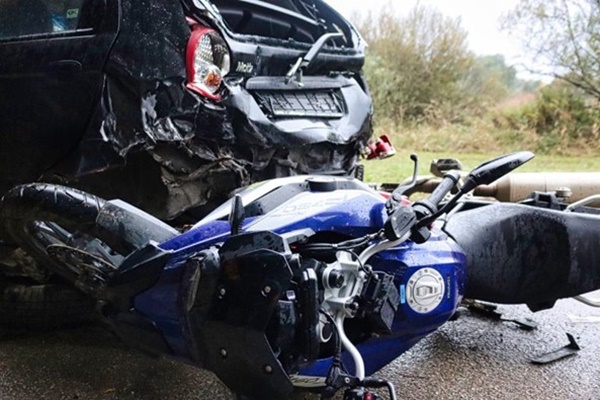If you or a loved one has been involved in a motorcycle accident, you know firsthand how devastating these accidents can be. Motorcycle accidents can result in serious injuries and even death, leaving victims and their families struggling to cope with the aftermath. If you're seeking compensation for your injuries and losses, it's important to understand the facts and statistics surrounding motorcycle accidents. By knowing these facts, you can better prepare yourself to navigate the legal process and work with an experienced personal injury attorney to get the maximum compensation possible. In this article, we'll explore five shocking facts and statistics about motorcycle accidents and what you can do to protect your rights and get the compensation you deserve.
Fact 1: Motorcyclists are 28 times more likely to die in a crash than occupants of a car
According to the National Highway Traffic Safety Administration (NHTSA), motorcyclists are 28 times more likely to die in crashes than car occupants. This is a startling statistic that highlights the unique risks faced by riders on the road. One reason for this increased risk is the lack of protection that motorcycles provide. Unlike cars with a protective shell and safety features like airbags, seatbelts, and crumple zones, motorcycles offer no such protection. A rider is likely to suffer serious or fatal injuries in a crash. Additionally, motorcycles are smaller and less visible than cars, making them more difficult for other drivers to see and avoid. These factors combine to create a dangerous environment for motorcyclists on the road.
Fact 2: Alcohol is a major contributing factor in motorcycle accidents
According to data from the National Highway Traffic Safety Administration (NHTSA) for 2020, alcohol impairment contributed to 28% of all motorcycle fatalities in the United States. This represents a higher percentage of fatalities involving alcohol impairment than any other type of vehicle. In contrast, alcohol impairment was a factor in 21% of passenger vehicle fatalities and 3% of large truck fatalities.
Fact 3: Motorcycle accidents can have serious economic and social impacts
According to data from the National Safety Council (NSC) for 2019, the estimated comprehensive cost of motorcycle accidents in the United States was $16.5 billion. This includes direct costs, such as medical expenses and property damage, and indirect costs, such as lost productivity and decreased quality of life. Additionally, motorcycle accidents can result in long-term disability, which can have significant social and economic consequences for individuals and their families.
Fact 4: Motorcyclists aged 40 and over are more likely to be killed in crashes than younger riders
According to the Insurance Institute for Highway Safety (IIHS), motorcyclists aged 40 and over are more likely to be killed in crashes than younger riders. The fatality rate for riders aged 40-49 is nearly four times higher than for riders under 30. This statistic may come as a surprise, as many people assume that younger riders are more reckless and at greater risk on the road. However, the data tells a different story. One possible explanation for this trend is that older riders are more likely to ride more powerful motorcycles, which can be more difficult to control and require more skill and experience. Additionally, older riders may be more vulnerable to serious injuries due to age-related changes in vision, reflexes, and other physical abilities. It's worth noting that these factors are not the only ones at play in motorcycle crashes and that riders of all ages must take steps to protect themselves and ride safely on the road.
Fact 5: Helmets can reduce the risk of death in a crash by 37%
According to the Centers for Disease Control and Prevention (CDC), helmets can reduce the risk of death in a crash by 37%. In addition to reducing the risk of death, helmets also lower the risk of head injury by 69%. Despite these clear benefits, not all motorcyclists wear helmets while riding. In some states, helmet use is not required by law, which may contribute to lower rates of helmet use overall. However, even in states where helmet use is mandatory, not all riders choose to wear helmets. Helmets are designed to absorb the impact of a crash and protect the rider's head and brain from injury. For this reason, many safety experts recommend that all motorcyclists wear helmets while riding, regardless of local laws or personal preferences.
Conclusion
To protect your rights and get the compensation you deserve after a motorcycle accident, seek medical attention, document everything, consult an experienced personal injury attorney, don't accept a settlement without consulting an attorney, and be patient. Keep detailed records of everything related to the accident. Work with your attorney to ensure you follow the proper procedures and take the necessary steps to get the maximum compensation.








No comments
Post a Comment